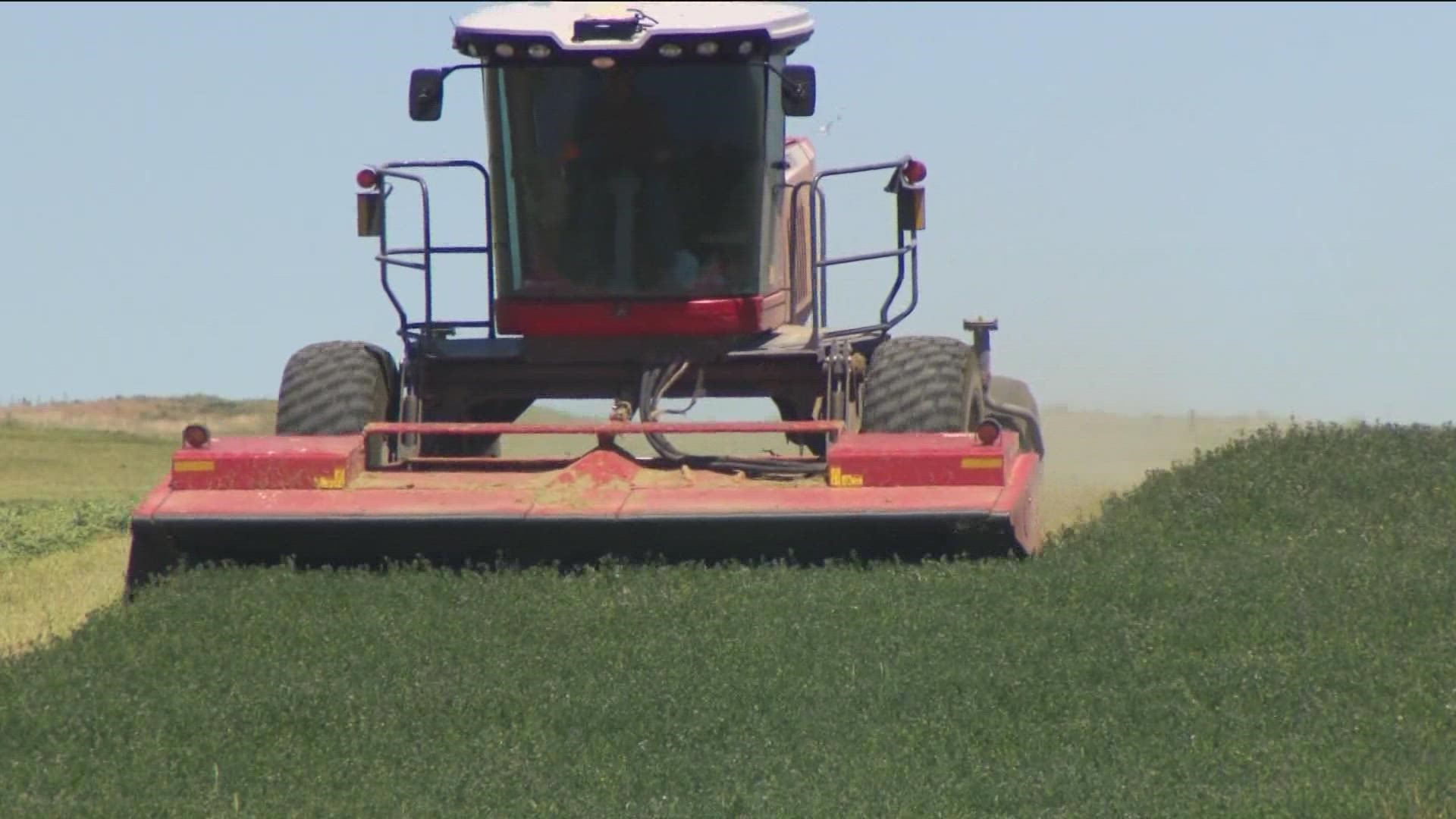BOISE, Idaho — As a national railroad strike appears to be off, the value of railroad infrastructure is now on display. As unions worked with the railroad industry to get better pay and working conditions, there were real fears that significant sections of America’s railroad system would be shut down.
At home in Idaho, a railroad strike would have created severe implications.
“With a railroad strike, agricultural commodities depend on the railroad. You can't switch everything from railroad to truck overnight," Idaho Farm Bureau Federation spokesman, Sean Ellis said. "It doesn't happen and the big bulk commodities like wheat, potatoes, corn, soybeans, etc., like that, that are moved by rail, can't just be switched to truck overnight."
Ellis said a railroad strike would have far-reaching consequences.
“Implications, from what I heard, would be far reaching. I don't want to say they would have been catastrophic, but they would have been significantly bad. It would have affected everything, would have affected every segment of agriculture," Ellis said. "Keep in mind, Idaho's a landlocked state. We produce a lot of different ag commodities. We don't have a huge population, virtually everything we produce here in Idaho shipped out. So, we're heavily dependent on transportation."
Another issue a railroad strike would have created in Idaho is supply lines into the Gem State.
“We also get a lot of inputs for the farmers and ranchers like fertilizer, those are shipped in. So, you have a double whammy there," Ellis said. "You can't ship anything out and you can’t ship anything in. I don't think anyone knows the extent of the impact, but it would have been very significant."
If railroads became unviable for shipping and receiving products because of a strike, trucks on roads would have been the next option. However, that is an option that pales in comparison to railroad infrastructure.
“There's no real substitute for moving agricultural goods and structurally move a small percentage of the big bulk commodities that are removed," Ellis said. "There's no substitute at the moment for that."
The timing of a perspective deal to avoid a strike is also huge for Idaho, the strike would have had at the crucial harvest time for many Gem State agriculture operations.
“It would have had a huge impact and keep in mind this Idaho is an agricultural state and we lead the nation in a lot of different categories," Ellis said. "We produce a lot of potatoes, wheat, barley, corn, you know, dairy products that are out that are shipped by rail. It would it would have had a large negative impact."
If Idaho operations were unable to ship their products out, they would be stuck holding onto their crops and products with the potential of seeing it spoil. That is millions of dollars left on the table.
“On an average year, we produce $8.5 billion worth of agricultural commodities and like I said, virtually all of those are shipped out," Ellis said. "So, a national railroad strike would have paralyzed Idaho agriculture. If it truly has been averted, it is welcome news. A big blessing for Idaho agriculture."
Join 'The 208' conversation:
- Text us at (208) 321-5614
- E-mail us at the208@ktvb.com
- Join our The 208 Facebook group: https://www.facebook.com/groups/the208KTVB/
- Follow us on Twitter: @the208KTVB or tweet #the208 and #SoIdaho
- Follow us on Instagram: @the208KTVB
- Bookmark our landing page: /the-208
- Still reading this list? We're on YouTube, too:

